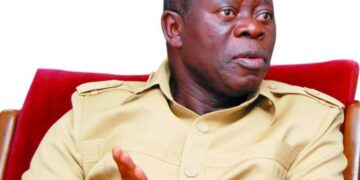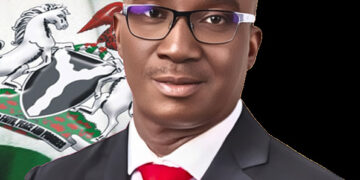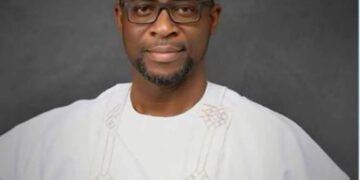By Emameh Gabriel
Like the Athenians who forgot their democracy, a party that defines itself by power alone will wither when power departs.
There comes a moment in the life of every political movement when it must pause and take stock, not just of its failures, but of its purpose. For Nigeria’s opposition parties, that moment has arrived with quiet urgency. The challenges they face today are not merely about electoral setbacks, but about something more fundamental- the need to rediscover the very purpose of their existence.
The People’s Democratic Party (PDP) presents a revealing case study in political transition. After governing Nigeria for sixteen consecutive years, a period that reshaped the nation’s democratic landscape, its shift from ruling party to opposition has been neither smooth nor successful. Like many long-dominant parties across democracies, the PDP has struggled to redefine itself once the familiar comforts of power eluded them.
There is a lesson here about how political organisations, when removed from power, often struggle to redefine themselves. The British statesman Enoch Powell once observed that “all political lives end in failure,” but wise oppositions understand that electoral defeat need not mean political irrelevance.
What makes the PDP’s current predicament particularly noteworthy is how it mirrors the experiences of dominant parties elsewhere in the world. Like the Congress Party in India or the Institutional Revolutionary Party (PRI) in Mexico, the PDP is learning that prolonged time in government can make the transition to opposition especially difficult. The habits of power, the assumptions of permanence, the institutional memory of governance, do not always serve well when the tables turn.
When Goodluck Jonathan conceded defeat in 2015, it marked more than just the end of an administration; it represented a rare moment of democratic maturity in Nigeria’s political development. That decision, taken against considerable internal pressure, demonstrated an understanding that democratic transitions require both winners and losers to play their parts with dignity. Today, that same spirit of constructive opposition seems in short supply.
We must not forget that external pressure, including from the opposition All Progressives Congress, also compelled Goodluck Jonathan to make that historic call to Buhari. The late Yar’Adua himself had acknowledged the widespread rigging that brought their administration to power in 2011. Jonathan recognised Nigeria was teetering on the brink of anarchy. He made the right call.
The All Progressives Congress (APC) emerged through a merger of opposition forces that understood the importance of both unity and strategy. Their success was not based on just in criticising the then ruling party, but in presenting themselves as a credible alternative. This is where contemporary opposition politics appears to falter, not for lack of criticism, but from an absence of compelling alternatives. The political theorist Hannah Arendt once wrote that the essence of politics is not just opposition, but the ability to “promise and fulfil.” This remains the fundamental challenge.
Opposition parties today face a landscape totally different from 2015. The electorate has evolved, becoming more discerning and less tribal in its voting patterns as we witnessed in the last general election. Social media has transformed political communication, while economic pressures have raised expectations of governance. In this environment, traditional opposition strategies, relying on elite defections or exploiting regional grievances, appear increasingly inadequate.
There are signs, however, that some within Nigeria’s opposition recognise these challenges. The occasional calls for internal reform, the tentative discussions about policy alternatives, and the growing recognition that personality-driven politics has limitations, these suggest the beginnings of introspection. Political history teaches us that successful oppositions often emerge stronger from periods of difficulty, provided they use that time wisely. APC is an example.
The German statesman Konrad Adenauer, who rebuilt his party after the Second World War, once remarked that “we all live under the same sky, but we don’t all have the same horizon.” For Nigeria’s opposition, expanding that horizon beyond short-term electoral calculations to a broader vision of national development, may be the key to renewal. This requires not just criticising government failures, but articulating clear, workable alternatives on everything from economic policy to security challenges.
The health of Nigeria’s democracy depends on having a credible opposition, one that can hold power to account while demonstrating its own capacity to govern. This is not about partisan advantage, but about democratic necessity. As the political scientist E.E. Schattschneider observed, “democracy is a competitive political system in which competing leaders and organisations define the alternatives of public policy in such a way that the public can participate in the decision making process.”
The present posture of Nigeria’s opposition reveals a troubling fixation on power rather than the real deal. When prominent figures like Nasir El-Rufai, now positioning themselves as opposition leaders, cite personal grievances, such as unmet political appointments, as their primary motivation for dissent, it simply exposes their inner motives. How does one reconcile their sudden “concern” for national issues with their track record of silence while in power? Then there is Rotimi Amaechi, who recently threw a birthday bash so lavish it could have fed at least 200 families or more, only to stand at the same event and declare, with a straight face, that he too is feeling the hunger in the land. These are the same leaders who, when in power, behaved as though the national treasury was their personal piggy bank, only to now pose as champions of the masses.
These examples underscore a broader pattern: opposition leaders who conflate personal grievances with public service undermine their credibility. This brand of opposition does a grave disservice to Nigeria’s democracy. True opposition requires more than self serving criticism and coalition building exercises that never materialise- it demands consistent, substantive engagement with governance issues.
Nigerians deserve an opposition that offers credible alternatives, not one that mirrors the excesses it condemns. Until these politicians move beyond self interest and theatrics, they will remain unserious actors in a democracy that desperately needs principled, solutions oriented opposition.
The examples of successful opposition movements elsewhere, from South Africa’s Democratic Alliance to Britain’s Labour Party during its years in opposition – suggest that renewal is possible, but never easy.
Nigeria’s democratic journey remains a work in progress, and the role of opposition parties in that process is too important to be left to chance and opportunists. As the country faces complex challenges in the coming years, the need for thoughtful, principled opposition will only grow. The question is whether current opposition parties can rise to that challenge, or whether new forces will emerge to fill the void.
In the end, political parties, like nations, are judged not just by their successes, but by how they respond to adversity. For Nigeria’s opposition, this may be their defining moment, an opportunity not just to oppose, but to offer; not just to criticise, but to inspire. The choice, as always in politics, is theirs to make.












































Discussion about this post